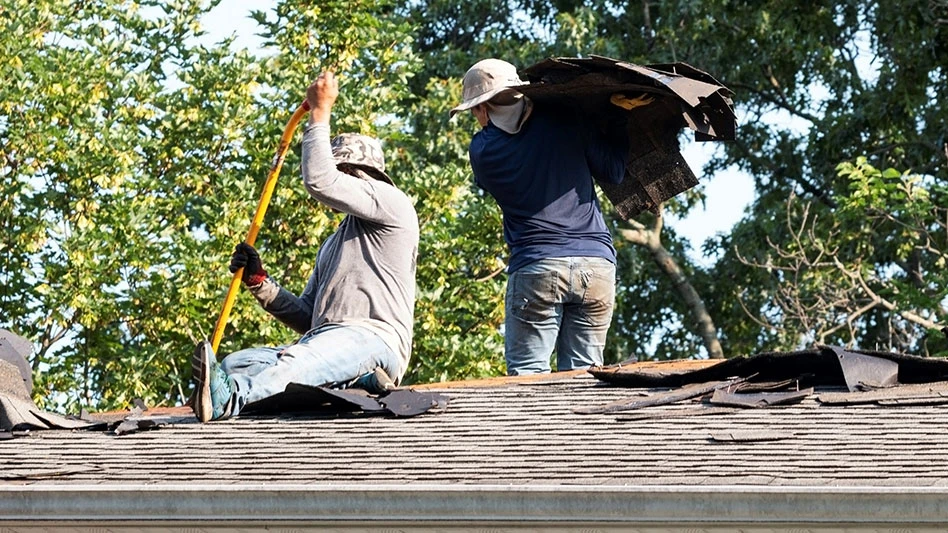
© coachwood | stock.adobe.com
Owens Corning says it has made progress on two key shingle recycling workstreams important for reaching its goal of recycling 2 million tons of shingles per year in the U.S. by 2030.
In late 2022, the Toledo, Ohio-based company and its partners launched an asphalt shingle recycling pilot developed to deconstruct residential and industrial waste shingles and extract their component materials. In less than a year of operation, the facility has successfully achieved shingle deconstruction and extracted asphalt, granules and filler. The process is designed to reclaim the entire shingle to avoid any components of the product going to waste, according to Owens Corning.
The materials extracted through this process have shown positive initial results; however, Owens Corning and its partners continue to modify and enhance the pilot process to optimize the resulting components for various future applications.
“The progress being made at the pilot is a very promising step toward the future of shingle recycling,” says Gunner Smith, president of Owens Corning Roofing. “What started at lab scale as shingle deconstruction with benchtop materials and testing has now been proven at pilot scale. The next step is plant trials where we will utilize the extracted materials in the development of new prototype shingles.”
RELATED: Under the same roof
In addition to developing various prototypes with recycled components for rigorous testing, the company and its partners will continue to scale up the pilot facility for increased material output and evaluation.
Recycling used shingles into asphalt pavement
To accelerate the use of recycled shingles in asphalt paving applications, the company has partnered with the National Center for Asphalt Technology (NCAT) to conduct research studies on the usage of recycled shingles in pavement.
The work with NCAT is evaluating the performance of asphalt mixtures made with a balanced mix design using recycled asphalt shingles (RAS). It also will measure the environmental impact of RAS in paving applications and generate full lifecycle assessment data on recycled asphalt shingles into pavement. This information can then be published in industry-wide guidelines to educate asphalt contractors across the U.S.
“These studies are in progress now, and we believe the results will show a clear value proposition for hot mix asphalt contractors. With the right balanced mix design, the carbon footprint of asphalt paving mixture can be lowered while maintaining the performance of the road,” says Laurand Lewandowski, director of Asphalt Innovation. “Aligning ourselves with industry leaders who can have a positive influence on this initiative is a significant benefit toward advancing the use of recycled asphalt shingles across the country, and ultimately keeping shingles out of landfills.”
Latest from Construction & Demolition Recycling
- Altera, Eco Materials open soil remediation facility in PA
- Steelmakers’ Q1 results largely profitable
- LS3600TX Low Speed Shredder enables efficient recycling
- Vermeer Recycling and Forestry specialists help simplify equipment selection
- Ritter Company discovers more business opportunities with Vermeer
- Dirt perfect: YouTuber embraces Demco Side Dump
- Montabert Multiprocessors: Power, precision, performance
- WM reports positive Q1 earnings





